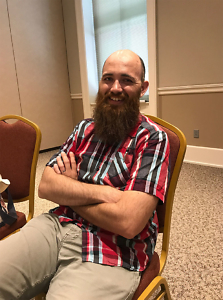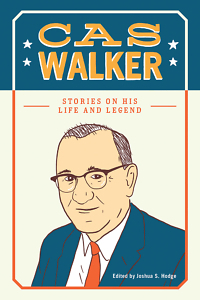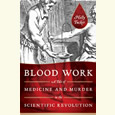A Man Opposed to Most Things
An oral history captures the legend of Knoxvillian Cas Walker
Knoxville’s Cas Walker was, among other things, a grocery store mogul, a local TV star, and a polarizing, larger-than-life politician. “Whether scattering freshly ground JFG Coffee beans along his store floors to stimulate sales, attracting crowds by throwing chickens off the roof, or luring customers by burying a man in the parking lot of his Chapman Highway grocery store, Cas Walker knew how to command everyone’s attention,” writes Joshua Hodge, the editor of Cas Walker: Stories on His Life and Legend, an oral history project that includes first-person accounts of this colorful character’s exploits, as well as excerpts from Walker’s autobiography.
 Walker was born in Sevier County, the seventh of 12 children. From the start, his life was marked by hard work and hustle. After being turned away from the Navy for being too young, Walker worked as a miner and a hay baler until he earned the capital to open his own grocery store. Eventually, his grocery empire would grow from one store to 10, and from the very beginning, his sales antics were infamous in the Knoxville area and beyond.
Walker was born in Sevier County, the seventh of 12 children. From the start, his life was marked by hard work and hustle. After being turned away from the Navy for being too young, Walker worked as a miner and a hay baler until he earned the capital to open his own grocery store. Eventually, his grocery empire would grow from one store to 10, and from the very beginning, his sales antics were infamous in the Knoxville area and beyond.
His first act as a grocery store owner was to throw chickens off the roof, telling customers they could have the chicken if they could catch it. When one of his stores flooded, soaking a rack of overalls, Walker declared a “flood sale,” slashing prices until the wet overalls sold like hotcakes. He even had employees drive more overalls over from his other store locations, spraying them down with a hose so they could be sold in the flood sale, too. Walker’s official stance on store promotions was, “If I’d thought of a few more things, I’d have stooped a little lower.”
One of Walker’s most famous events was hiring stuntman Digger O’Dell to be buried alive in “the world’s smallest apartment” in a store parking lot. O’Dell’s unusual shtick was to remain underground for weeks at a time, and he had a dubious reputation for his feats of endurance, earning exorbitant fees. But O’Dell met his match in Walker. When he started getting claustrophobic, Walker refused to dig him up. In the words of journalist Betty Bean, “Digger started faking heart attacks and calling the newspapers and the health department to complain that Walker was denying him medical care. Walker’s solution was to dress two women who worked for him in ‘nurse suits’ and station them above the grave, selling barbecued chicken sandwiches.”
Cas Walker includes a chapter on Walker’s TV program, “The Farm and Home Hour,” which showcased live music and grocery store announcements. A generation of Knoxvillians grew up watching the show, and it featured both talented and untalented performers from the area. One standout performer was nine-year-old Dolly Parton, who was brought to the show to sing before going to school. Why did Walker put untalented folks on the air? According to his longtime driver David West, “His theory was everybody buys groceries,” and he relied on performers to rally their family members to watch.
 Walker might have earned his initial fame as a grocer, but he solidified his reputation as a Knoxville institution through his political career and controversial newspaper, The Watchdog. The newspaper claimed to publish the “unvarnished naked truth that can be backed up in court,” but it landed Walker in court more than once. Walker was vehemently opposed to the politics of “the silk stocking crowd” — actually, he was known for being opposed to most things. “I’m agin’ it,” was his most common response at council meetings, and a picture of Walker taking a swing at another council member once briefly tarnished Knoxville’s reputation when it was published in Life magazine.
Walker might have earned his initial fame as a grocer, but he solidified his reputation as a Knoxville institution through his political career and controversial newspaper, The Watchdog. The newspaper claimed to publish the “unvarnished naked truth that can be backed up in court,” but it landed Walker in court more than once. Walker was vehemently opposed to the politics of “the silk stocking crowd” — actually, he was known for being opposed to most things. “I’m agin’ it,” was his most common response at council meetings, and a picture of Walker taking a swing at another council member once briefly tarnished Knoxville’s reputation when it was published in Life magazine.
Today, when public figures are “canceled” for controversial statements, a character like Cas Walker would never enjoy such broad, enduring appeal, and that’s part of what makes this book so interesting. By presenting accounts of Walker’s life through the personal stories of people who knew him, it allows readers see his life in its historical context and to appreciate him as a complicated, sometimes confounding man.
Cas Walker: Stories on His Life and Legend is largely the work of Hodge, a UT Knoxville historian who died of brain cancer in May of this year. A scholarship in memory of Hodge’s exemplary work has been established and will be publicly announced at an event to honor Hodge and celebrate the book’s release, held at the university’s John C. Hodges Library on November 5.
If this review has reminded you of your own Cas Walker story, consider contributing to the university’s ongoing Cas Walker Story Project.

Sarah Carter is a freelance writer living in Nashville, TN. She holds an M.F.A. in creative writing from the Sewanee School of Letters.


